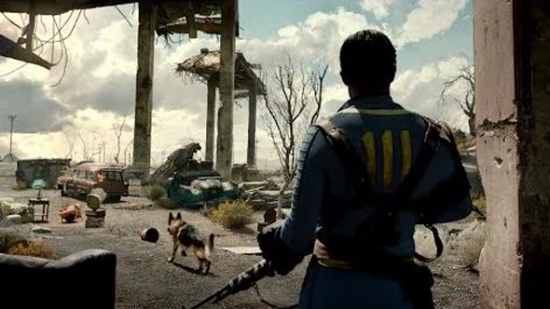Singer Dion DiMucci has filed a lawsuit against Bethesda, saying the Fallout 4 advert in which they used his song ‘The Wanderer’ was “repugnant.”
For other repugnant and morally indefensible shooters, take a look at our list of the best first-person shooters on PC.
This is the advert in question:
DiMucci had an agreement with Universal that allowed his song to be licensed for use in adverts, but there was a clause in the document which, DiMucci claims, means the advert couldn’t be played without Bethesda getting personal approval from DiMucci himself – something DiMucci says never happened.
The court document doesn’t couch its language:
“As a direct and proximate of Defendant’s actions, Plaintiff has been damaged. In addition to the loss of the fee which Plaintiff had the right to charge for the use of his performance in commercial advertisements, he lost his right to refuse consent.
Defendant’s Commercials were objectionable because they featured repeated homicides in a dark, dystopian landscape, where violence is glorified as sport. The killings and physical violence were not to protect innocent life, but instead were repugnant and morally indefensible images designed to appeal to young consumers.
In The Wanderer, Dion gives life to the story of a sad young man who wanders from town to town, not having found himself or the capacity for an enduring relationship. The song describes isolation during coming of age.
Without Plaintiff’s consent, Defendants dubbed The Wanderer into commercials in which the protagonist, a wanderer, roams from one location to the next, armed and hunting for victims to slaughter. Defendant’s Commercials have no redeeming value, they simply entice young people to buy a videogame by glorifying homicide, making the infliction of harm appear appealing, if not also satisfying.Had Defendant performed its obligations and bargained with Plaintiff prior to the first use, Plaintiff could have used his right to refuse consent to persuade Defendant to change the scripts so that, for instance, they instead told the story of a postapocalyptic struggle for survival without craven violence. Alternately, he could have priced into his fee adequate compensation to safeguard himself against the potential loss of goodwill from being associated with the immoral images in Defendant’s scripts.”
DiMucci is asking for $1m to pay for damages to his reputation and the potential loss of income, and to cover the legal costs of suing Bethesda.
Had Bethesda contacted DiMucci, the singer’s suit claims, “[Dion] could have used his right to refuse consent to persuade Defendant [Bethesda] to change the scripts so that, for instance, they instead told the story of a postapocalyptic struggle for survival without craven violence. Alternately, he could have priced into his fee adequate compensation to safeguard himself against the potential loss of goodwill from being associated with the immoral images in Defendant’s scripts.”
We’ve contacted Bethesda for comment.
